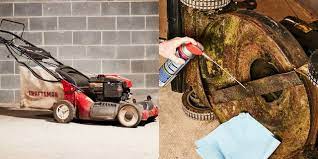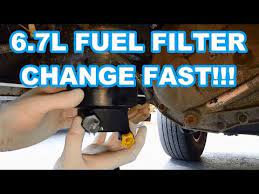Revitalize Your Engine: Cleaning Your Lawn Mower’s Fuel Filter
If you’ve ever experienced engine trouble or a loss of power while driving, a clogged fuel filter could be the culprit. Understanding the role of the fuel filter in your vehicle’s performance is crucial for maintaining its efficiency and longevity. In this blog post, we’ll discuss the importance of the fuel filter, how to recognize the signs of a clogged filter, and the process of choosing and replacing the right filter for your vehicle. We’ll also provide a step-by-step guide for cleaning the filter and testing the engine after maintenance. Keep reading to learn how to keep your engine running smoothly with proper fuel filter maintenance.
Understanding The Fuel Filter’s Role
When it comes to the proper functioning of your vehicle, the fuel filter plays a crucial role in ensuring that your engine runs smoothly. It is responsible for filtering out any impurities and contaminants from the fuel before it reaches the engine, preventing any potential damage or issues. Understanding the fuel filter’s role is essential for maintaining the overall performance and longevity of your vehicle.
A fuel filter acts as a barrier between the fuel tank and the engine, capturing any dirt, rust, or other particles that may be present in the fuel. This is important because these contaminants can cause damage to the fuel injectors, carburetor, or other engine components if they were to make their way through. Additionally, a clean fuel filter ensures that the engine receives a consistent flow of clean fuel, which is crucial for optimal performance.
Regular maintenance and cleaning of the fuel filter is necessary to ensure that it continues to function effectively. Over time, the filter can become clogged with debris, which can restrict the flow of fuel to the engine. This can lead to a variety of issues, including engine hesitation, stalling, or difficulty starting. Understanding the role of the fuel filter and knowing how to clean a fuel filter can help prevent these problems and keep your vehicle running smoothly.
Signs Of A Clogged Fuel Filter
One of the most common issues that car owners face is a clogged fuel filter. A fuel filter is an essential component of a vehicle’s fuel system, as it is responsible for filtering out dirt, debris, and other contaminants from the fuel before it reaches the engine. When a fuel filter becomes clogged, it can lead to a number of problems that can affect the performance and efficiency of the vehicle.
There are several signs that indicate a clogged fuel filter. One of the most obvious signs is difficulty starting the engine. If the fuel filter is clogged, it can restrict the flow of fuel to the engine, making it difficult for the vehicle to start. In some cases, the engine may also stall shortly after starting or have a rough idle. Another common sign of a clogged fuel filter is a noticeable decrease in fuel efficiency. When the filter is clogged, the engine may not be receiving enough fuel, leading to decreased gas mileage.
In addition to difficulty starting the engine and decreased fuel efficiency, a clogged fuel filter can also cause the vehicle to experience hesitation or sputtering during acceleration. This is because a clogged filter can restrict the flow of fuel to the engine, leading to a lack of power and performance. If you notice any of these signs, it’s important to address the issue as soon as possible to prevent further damage to the vehicle’s fuel system.
Choosing The Right Replacement Filter
When it comes to choosing the right replacement fuel filter, there are several factors to consider. It’s important to understand the role of the fuel filter in the vehicle’s overall performance and the impact it can have on the engine. Additionally, knowing how to select the right type of filter for your specific vehicle is crucial in ensuring optimal performance and longevity.
One of the first things to consider when choosing a replacement fuel filter is the make and model of your vehicle. Not all filters are universal, and different vehicles require different types of filters to effectively remove contaminants from the fuel. It’s essential to consult your vehicle’s manual or speak with a trusted mechanic to determine the specific type of filter that is compatible with your car.
Furthermore, the quality of the replacement filter should not be overlooked. A high-quality filter can effectively remove harmful contaminants from the fuel and prevent them from reaching the engine. Look for filters that are designed to meet or exceed OEM specifications, ensuring that they provide adequate filtration and protect the engine from damage. Additionally, consider the filter’s durability and longevity to ensure that it will continue to perform effectively over time.
Preparing For Filter Replacement
When it comes to preparing for filter replacement, there are a few important steps to take in order to ensure a smooth and successful process. One of the first things to consider is choosing the right replacement filter for your vehicle, as this will have a significant impact on its performance and longevity.
Before beginning the replacement process, it’s important to understand the fuel filter’s role in your vehicle’s operation. A fuel filter plays a crucial role in ensuring that only clean fuel is delivered to the engine, preventing any particles or impurities from causing damage. It’s essential to prioritize the cleanliness of the fuel filter to maintain proper engine function.
Once you have a clear understanding of the fuel filter’s role and have chosen the right replacement filter, you can begin preparing for filter replacement. This may involve gathering all necessary tools and equipment, as well as ensuring that you have a clean and safe workspace to work in. Taking these preparatory steps can help to streamline the replacement process and avoid any potential complications.
Step-By-Step Filter Cleaning Process
When it comes to maintaining your car, cleaning the fuel filter is an important part of the process. A clogged fuel filter can cause a lot of problems for your engine, so it’s crucial to know how to clean a fuel filter properly. By following a step-by-step process, you can ensure that your fuel filter is clean and functioning efficiently.
Firstly, you will need to gather the necessary tools and materials for the cleaning process. This may include a new filter, safety gloves, safety goggles, rags, a drain pan, and a wrench. Once you have all the items ready, you can start the process of removing the fuel filter from your vehicle.
Next, carefully disconnect the fuel filter from the fuel line using the appropriate wrench. Be sure to have the drain pan ready to catch any fuel that may spill during this process. Once the filter is removed, carefully inspect it for any signs of damage or clogging. If it is heavily clogged, it may be best to replace the filter with a new one. If it can be cleaned, carefully follow the manufacturer’s instructions for cleaning the filter using the appropriate cleaning solution and materials.
Testing The Engine After Filter Cleaning
After going through the process of cleaning a fuel filter, it’s important to perform a test on the engine to ensure that the filter is functioning properly and that the fuel flow is consistent. It’s crucial to perform this test to avoid any potential issues that may arise if the filter is not functioning as it should. Here are the steps you should take to test the engine after cleaning the fuel filter.
Firstly, start by turning on the engine and letting it run for a few minutes. Listen for any unusual sounds or vibrations that may indicate a problem with the fuel flow. If everything sounds normal, take the vehicle for a short drive to see how it performs. Pay close attention to the engine’s responsiveness and acceleration, as well as any potential stalls or hesitations.
If you notice any issues during the test drive, such as a lack of power or difficulty accelerating, it may indicate that there is still a problem with the fuel filter. In this case, it’s important to revisit the cleaning process and ensure that the filter is completely free from debris and contaminants. It’s also a good idea to check for any leaks or blockages in the fuel system that may be affecting the flow of fuel to the engine.
Frequently Asked Questions
Why is understanding the fuel filter’s role important?
Understanding the fuel filter’s role is important because it ensures proper functioning of the vehicle’s engine by keeping contaminants out of the fuel system.
What are the signs of a clogged fuel filter?
Signs of a clogged fuel filter include engine sputtering, stalling, struggles while accelerating, and a noticeable decrease in fuel efficiency.
How do I choose the right replacement filter?
Choose the right replacement filter by considering the vehicle’s make and model, the fuel type, and the manufacturer’s recommendations.
What do I need to do to prepare for filter replacement?
To prepare for filter replacement, gather the necessary tools, locate the fuel filter, and relieve the pressure in the fuel system.
What is the step-by-step filter cleaning process?
The step-by-step filter cleaning process involves removing the filter, cleaning it with a solvent, and allowing it to dry before reinstalling it.
How do I test the engine after filter cleaning?
Test the engine after filter cleaning by starting the vehicle and checking for smooth and consistent engine operation.
Why is it important to regularly maintain the fuel filter?
Regular maintenance of the fuel filter is important to ensure optimal performance and longevity of the fuel system, and to prevent costly repairs in the future.
Why is understanding the fuel filter's role important?
Understanding the fuel filter’s role is important because it ensures proper functioning of the vehicle’s engine by keeping contaminants out of the fuel system.
What are the signs of a clogged fuel filter?
Signs of a clogged fuel filter include engine sputtering, stalling, struggles while accelerating, and a noticeable decrease in fuel efficiency.
How do I choose the right replacement filter?
Choose the right replacement filter by considering the vehicle’s make and model, the fuel type, and the manufacturer’s recommendations.
What do I need to do to prepare for filter replacement?
To prepare for filter replacement, gather the necessary tools, locate the fuel filter, and relieve the pressure in the fuel system.
What is the step-by-step filter cleaning process?
The step-by-step filter cleaning process involves removing the filter, cleaning it with a solvent, and allowing it to dry before reinstalling it.
How do I test the engine after filter cleaning?
Test the engine after filter cleaning by starting the vehicle and checking for smooth and consistent engine operation.
Why is it important to regularly maintain the fuel filter?
Regular maintenance of the fuel filter is important to ensure optimal performance and longevity of the fuel system, and to prevent costly repairs in the future.




Post Comment